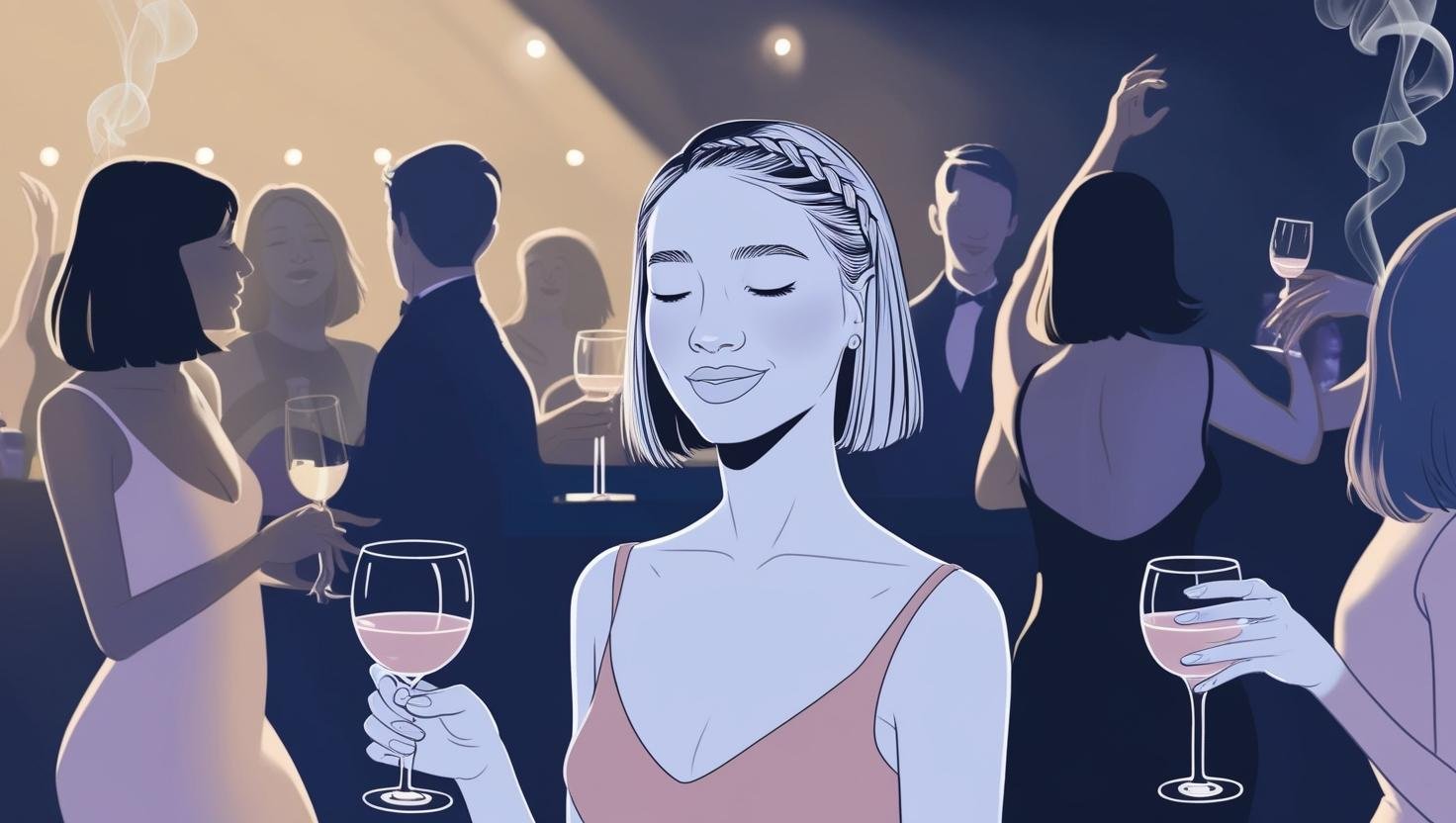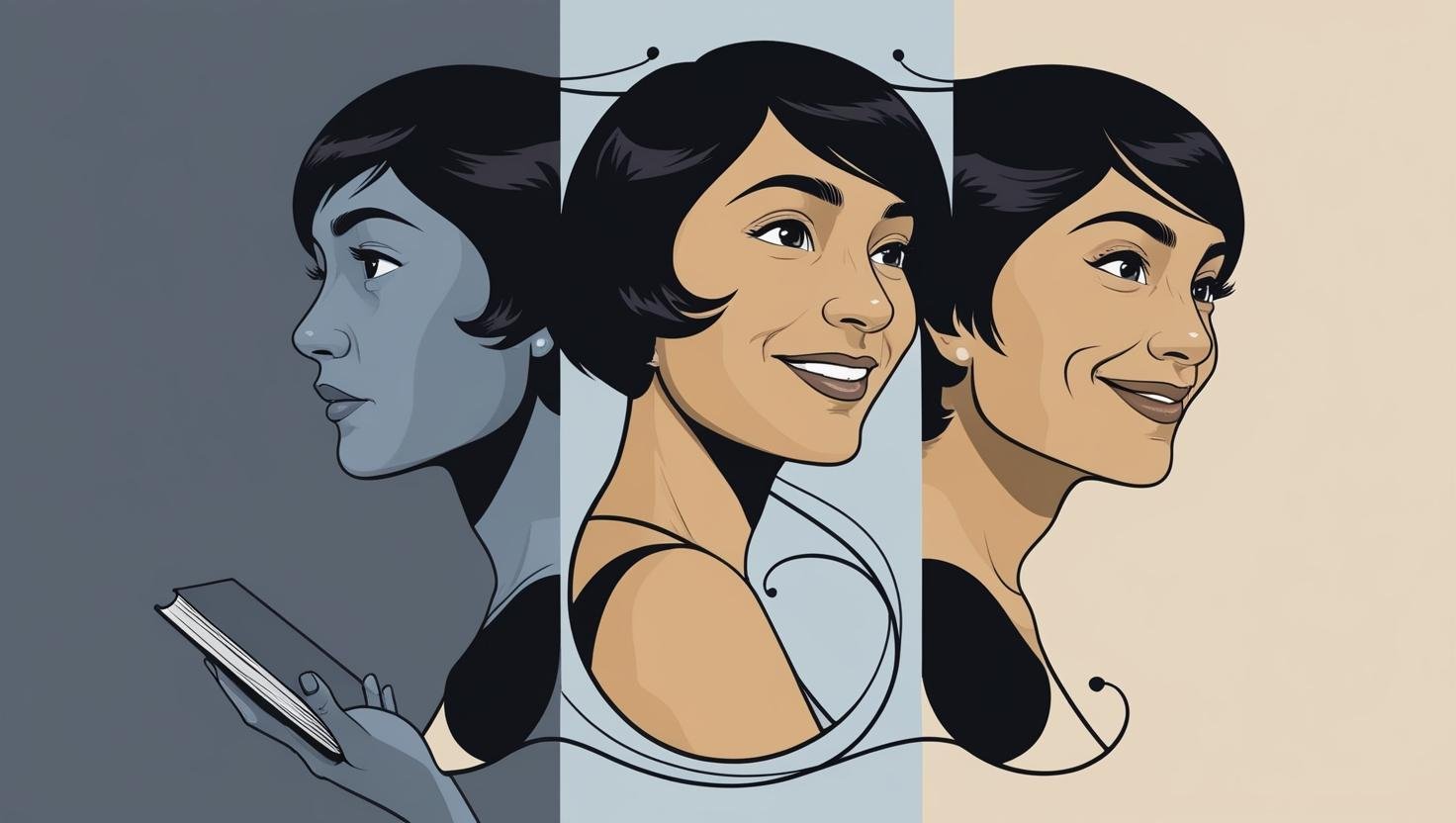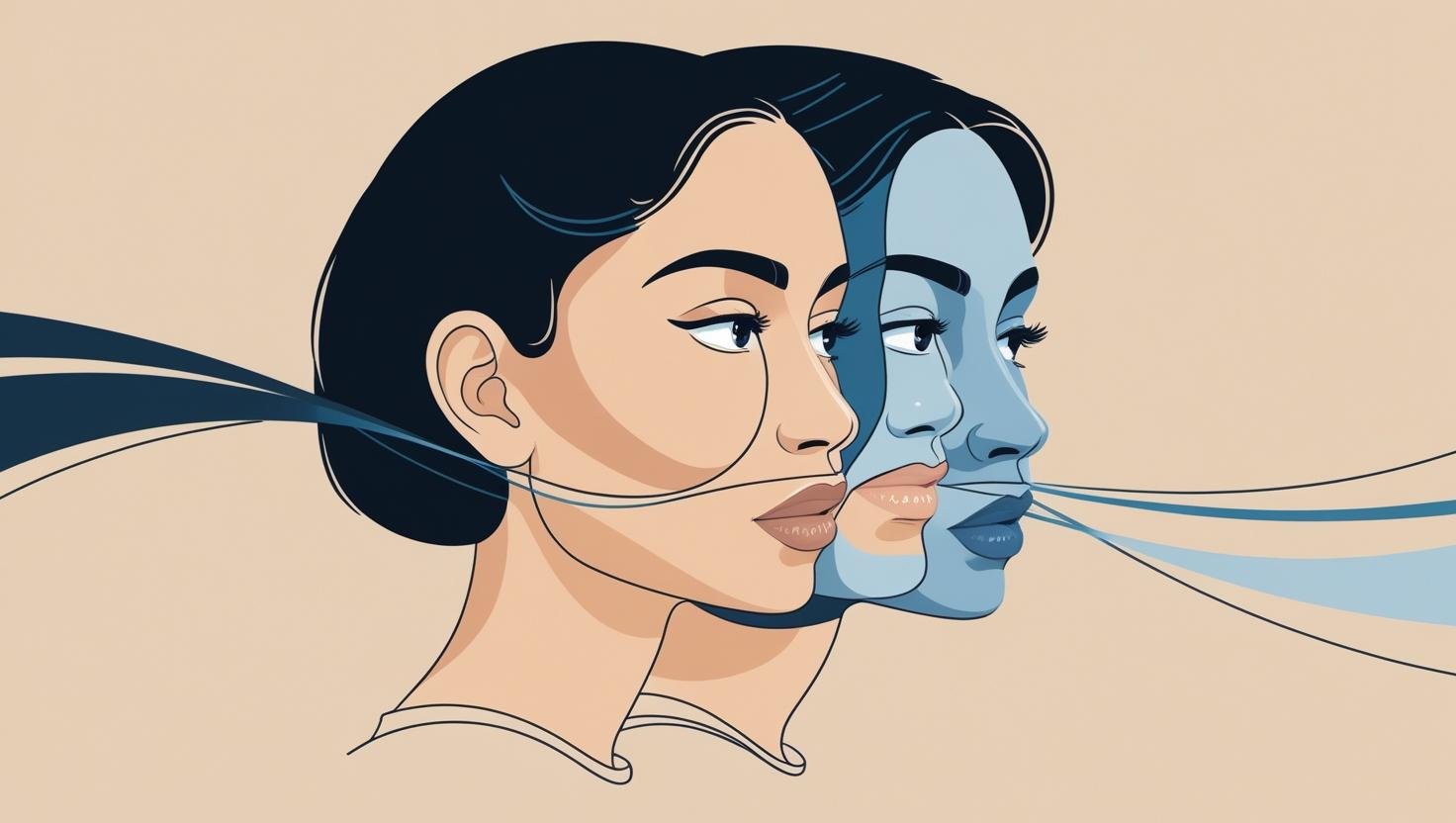the duality: when we act against our own knowledge
After days of some quality overthinking, I'm finally ready to share something personal: my beautiful human duality.
The Night That Contradicted My Convictions
Last Friday, I broke my hermit routine to celebrate a friend's birthday. The hermit emerged from her cave! The anticipation of reconnecting with people I love filled me with joy. And it was incredible—absolutely incredible. I love my friends deeply. Sure, I treasure my alone time with books and thoughts, but there's something irreplaceable about genuine connection: laughter until sunrise, conversations that jump from "did you see that TikTok?" to "what's your theory on consciousness?" and those hugs that somehow fix everything temporarily.
We gathered at my friend's place. The usual suspects, the effusive greetings, life updates, inside jokes that make zero sense to outsiders... everything flowed like we'd seen each other yesterday. And then came that moment: the first round of drinks appeared.
Here's where my internal movie split into two simultaneous scenes:
Screen 1: Wellness Nina, who has fallen down countless research rabbit holes about how alcohol destroys you, messes with neurotransmitters, and basically makes your cells sad. This Nina had all the data, studies, and personal "never again" hangover memories to prove drinking wasn't the move.
Screen 2: The social butterfly Nina, who unconsciously associates those drinks with belonging, with moments of shared vulnerability, with the beautiful freedom to be absolutely "silly" with people she loves.
Without so much as a dramatic internal monologue, Party Nina just... won.
One drink turned into several. "Just one more" became the night's motto. The evening progressed with increasingly off-key karaoke performances and questionable dance moves. Then came other substances (which, reminder, I had also firmly decided to leave behind). By the end of the night, I found myself doing precisely what sober-morning-Nina had sworn never to do again. The weirdest part? At no point did it feel "wrong." Not even a little bit.
I spent the weekend in recovery mode (hello, darkness, my old friend), and by Monday, I was back to my hermit tea-drinking routine. But one question lingered: what the f happened?
The Multiple Ninas Within Me
What fascinates me most is this temporary "¯\(ツ)/¯" attitude. Why does something I know isn't good for me feel so... normal in the moment? So acceptable. So "this is just what humans do."
After the weekend, I actually googled Alcoholics Anonymous—dramatic, I know—thinking maybe I was sitting on an undiscovered addiction. But in an honest assessment, I can go months—even a whole year—without these substances and feel zero compulsion or anxiety. So no, not an addiction in the clinical sense.
What was it, then?
Richard Schwartz says we're not just one person but a whole internal family system of "parts" or subpersonalities. The Nina Collective includes:
The Nina who researches wellness and understands alcohol's negative effects
The Nina who yearns for connection and feels fulfilled in community and sharing
The Nina who associates certain rituals (like drinking) with belonging and the release of inhibitions
None of these Ninas is the "real me" or the "fake me." They're not competing for "Best Nina" at the Internal Oscars. All are genuine aspects of me trying to get legitimate needs met, even when they contradict each other in ways that make zero logical sense.
The Shadow Seeking Expression
"The tree that stretches most toward the light is the one that sinks its roots most deeply into darkness." - Carl Jung
What if my apparent "whatever" attitude wasn't a lack of character, but the expression of repressed aspects of myself? Jung speaks of the shadow: those parts we repress because we consider them unacceptable.
In my case, maybe I've been repressing my wilder, spontaneous, "let's see what happens" side while I've been busy becoming "Spiritually Evolved Nina". But the shadow doesn't just disappear when ignored. It waits for your guard to drop—like, say, when you're surrounded by friends and feeling safe—then jumps out yelling "SURPRISE, REMEMBER ME?"
That night, my shadow found the perfect opportunity to tap me on the shoulder and say: "Hey Nina, I exist too. You can pretend I'm not here, but I'm literally part of your operating system."
The Dopamine Hijack
"Pretend you're a country and your brain is a dictator who really, really loves dopamine." - Anna Lembke, "Dopamine Nation"
Our brains evolved to seek pleasure and avoid pain—a fantastic system when resources were scarce and our biggest worry was not becoming lion lunch. The problem? We now live in a world that has completely hacked this system.
Substances trigger dopamine releases much greater than natural rewards. Our fucking cell phone is heroin. Cheap dopamine on tap.
That night, the social environment, music, laughter, and then alcohol created a dopamine cascade that literally "hijacked" my prefrontal cortex—the part responsible for decision-making.
It's not an excuse, but it is a neurochemical explanation for why a decision that seems firm at 8am can mysteriously evaporate by 8pm under the right (or wrong) circumstances.
The Awkward Dance of Cognitive Dissonance
Then came the mental gymnastics routine. Cognitive dissonance is that uncomfortable mental state when your actions and beliefs are having a fight.
"It was just one night, not like I'm doing this every weekend."
"Everyone needs to let loose sometimes, it's actually healthy."
"I'm on a journey, not at the destination—progress not perfection, right?"
I recognize these justifications in myself. And while they contain some truth (I am indeed in a process), I also see how they can become permission to avoid facing contradictions.
The Big Question: What Should I Really Work On?
So here's what I'm really wrestling with: what's the actual work here?
Should I go full prohibition era on alcohol and other substances? Or find a way to integrate these social moments without betraying my conscious path? It's like trying to decide whether to delete your ex's number or keep it "just in case of emergencies" (spoiler: texting them at 2 AM is never an emergency).
Because there's something undeniable: I genuinely love those moments of deep connection with friends. Those laughs where you're not even sure why you're laughing anymore. It's not just about the substances, it's about the shared vulnerability of collectively letting our guards down and being beautifully, imperfectly, silly humans together.
Maybe this isn't a black-or-white situation. Maybe the questions worth asking are:
What am I really seeking in those moments? (Connection? Freedom? Escape?)
Is there another way to get that same feeling without the Sunday regret?
Or—plot twist—do some human contradictions actually not need to be "fixed"?
Duality as Teacher, Not Enemy
A few days later, I had a different understanding: perhaps this duality isn't an obstacle in my spiritual path. Perhaps it is the path itself.
Alan Watts said that "light can only shine through darkness." Maybe these contradictions aren't flaws in my programming but opportunities for deeper understanding.
Instead of seeing this duality as a problem to solve, I began to see it as a teacher offering three lessons:
Compassion: If even I, with my “awareness”, cannot align my actions with my knowledge, shouldn't I extend more compassion toward others in their own struggles?
Integration: Perhaps the goal isn't to eliminate parts of myself, but to find more aligned and conscious ways to express them.
Non-duality: Maybe this experience invites me to see beyond "good/bad" categories toward a more integrated understanding of human experience.
Or am I creating all these lessons to justify being more permissive with myself? It's possible. The mind is expert at justifications.
An Invitation
As you're reading this, maybe something in your own life is raising its hand in recognition. Maybe it's not substances for you—maybe it's the relationship you know isn't healthy but keep going back to, the social media habit that drains you, or the way you abandon your boundaries around certain people.
I invite you to ask yourself, with the curiosity:
What needs are these behaviors actually trying to meet?
Which parts of you feel they've been exiled from the conversation?
Our contradictions aren't evidence that we're failing at this human thing. Maybe they're signs we're doing exactly what we need to: facing, with courage and compassion, the beautiful mess of being human.
After all, the most interesting characters in any story aren't the perfectly consistent ones—they're the ones full of contradictions, just like us.
P.S. If this resonated somewhere in your contradictory human heart, you might enjoy my newsletter. I send weekly existential musings directly to your inbox.






